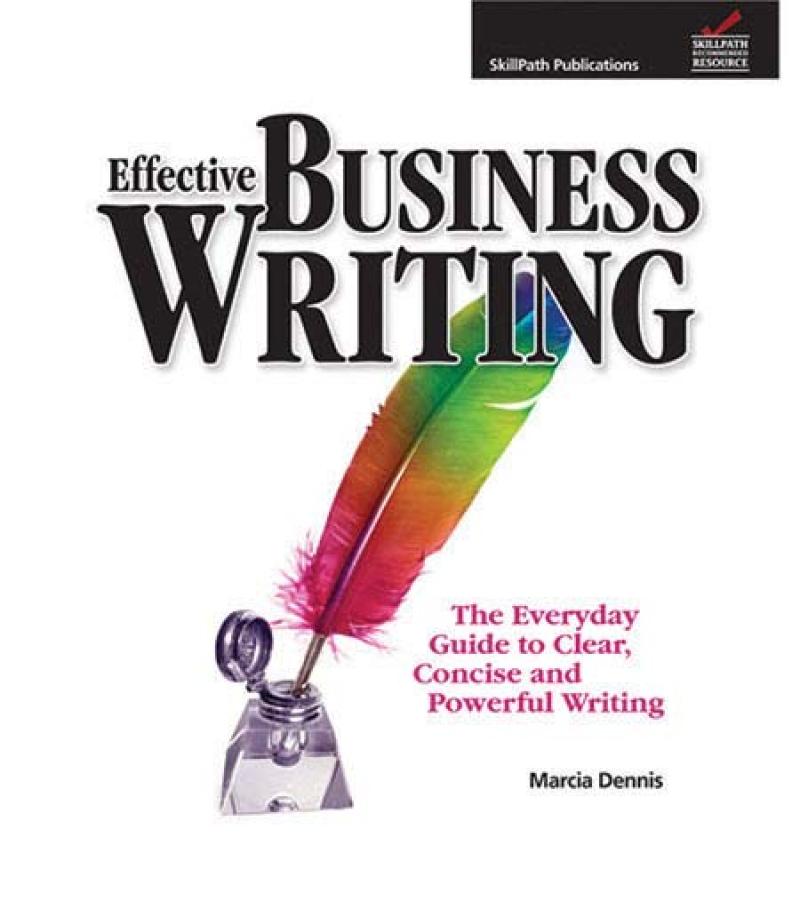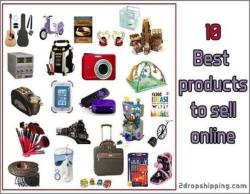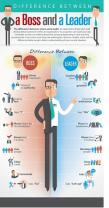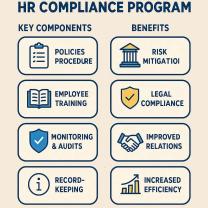What is effective business writing?
Effective business writing is the ability to convey information clearly, persuasively, and professionally in a business context. It involves creating written documents that are purposeful, audience-focused, and aligned with the goals of the organization. Here are key strategies to master effective business writing:
Understand Your Audience:
- Identify your target audience and understand their needs, interests, and knowledge level. Tailor your message to resonate with your audience, whether it's clients, colleagues, executives, or other stakeholders.
Define Your Purpose:
- Clearly define the purpose of your writing. Are you informing, persuading, requesting, or proposing? Knowing your objective helps you structure your message appropriately.
Use a Clear and Concise Style:
- Keep your writing clear, concise, and to the point. Avoid unnecessary jargon, overly complex sentences, and wordiness. Business writing should be easily understood by a diverse audience.
Organize Information Logically:
- Structure your document in a logical and organized manner. Use headings, subheadings, and bullet points to make the content easily scannable. A well-organized document enhances readability.
Begin with a Strong Opening:
- Capture your reader's attention with a strong and engaging opening. Clearly state the purpose of your communication and provide a preview of what to expect.
Maintain a Professional Tone:
- Use a professional and respectful tone in your writing. Avoid overly casual language and be mindful of cultural sensitivities. A professional tone enhances your credibility.
Edit and Proofread:
- Take the time to edit and proofread your work. Check for grammar, spelling, and punctuation errors. Ensure that your message is coherent and error-free before sharing it with others.
Adapt to the Medium:
- Adapt your writing style to the medium you are using. Emails may require a more direct and concise approach, while formal reports may demand a more structured and detailed format.
Provide Context and Background:
- Ensure that your reader has the necessary context and background information to understand your message. Provide relevant details without overwhelming the reader with unnecessary information.
Use Appropriate Visuals:
- Incorporate visuals, such as charts, graphs, or tables, when they can enhance understanding. Visual elements can support your message and make complex information more accessible.
Be Mindful of Tone and Language:
- Consider the emotional tone of your writing. Depending on the context, your tone might be informative, persuasive, or collaborative. Choose language that aligns with the desired tone.
Consider the "You" Perspective:
- Frame your message from the perspective of the reader. Use the "you" perspective to emphasize how the information is relevant and beneficial to the reader.
Avoid Ambiguity:
- Be precise in your language to avoid ambiguity. Clearly communicate your message and ensure that there is no room for misinterpretation.
Seek Feedback:
- If possible, seek feedback from colleagues or peers before finalizing important documents. Fresh perspectives can identify areas for improvement and ensure clarity.
Follow Up and Revise:
- If your communication involves a call to action or a request for feedback, follow up as necessary. Additionally, be open to revising your communication based on feedback and changing circumstances.
By incorporating these strategies into your business writing practices, you can enhance your ability to communicate effectively and achieve your intended business outcomes.
Key elements of effective business writing techniques
Mastering effective business writing involves wielding a range of tools and strategies to ensure your message is clear, impactful, and achieves its intended goals. Here are some key elements to keep in mind:
Clarity and Conciseness:
- Precise and focused language: Ditch jargon and technical terms unless absolutely necessary. Opt for everyday language that your audience readily understands.
- Active voice and concise sentences: Favor active voice constructions for clarity and directness. Aim for short, impactful sentences that avoid fluff and redundancy.
- Logical organization: Structure your writing with a clear introduction, body paragraphs that build your argument, and a strong conclusion that summarizes your key points.
Professionalism and Tone:
- Maintain a professional tone: While formality is important, avoid sounding robotic or overly stiff. Adapt your tone to the specific audience and purpose of your writing.
- Grammar and punctuation accuracy: Typos and errors can undermine your credibility. Dedicate time to proofreading and editing for grammar, punctuation, and spelling perfection.
- Formatting and presentation: Consistent formatting (font, margins, spacing) and visually appealing layouts create a professional and easy-to-read document.
Engagement and Persuasiveness:
- Hook your reader: Start with a compelling introduction that grabs attention and sets the stage for your message.
- Focus on the reader's needs: Tailor your content to address their specific interests, concerns, and questions. Show them how your information benefits them.
- Use data and evidence: Support your arguments with relevant data, statistics, or real-life examples to build credibility and persuade your audience.
- Storytelling elements: Consider incorporating anecdotes, case studies, or relatable scenarios to engage your reader and make your message memorable.
Additional Important Elements:
- Know your audience: Understand their background, knowledge level, and expectations to tailor your message accordingly.
- Active voice, again: It bears repeating; active voice enhances clarity and makes your writing more impactful.
- Conciseness matters: Eliminate unnecessary words and redundancy. Every sentence should serve a purpose.
- Visual aids: Consider using graphics, charts, or diagrams to break up text and enhance understanding complex concepts.
- Strong calls to action: Tell your reader what you want them to do next, whether it's contacting you, taking a specific action, or sharing your information.
Remember, effective business writing is a continuous learning process. By consistently applying these elements, you can refine your skills and craft impactful messages that achieve your desired outcomes. Don't hesitate to experiment, seek feedback, and keep honing your writing prowess to become a master communicator in the professional world.
Feel free to ask if you'd like to delve deeper into specific elements or need help applying them to your writing!












